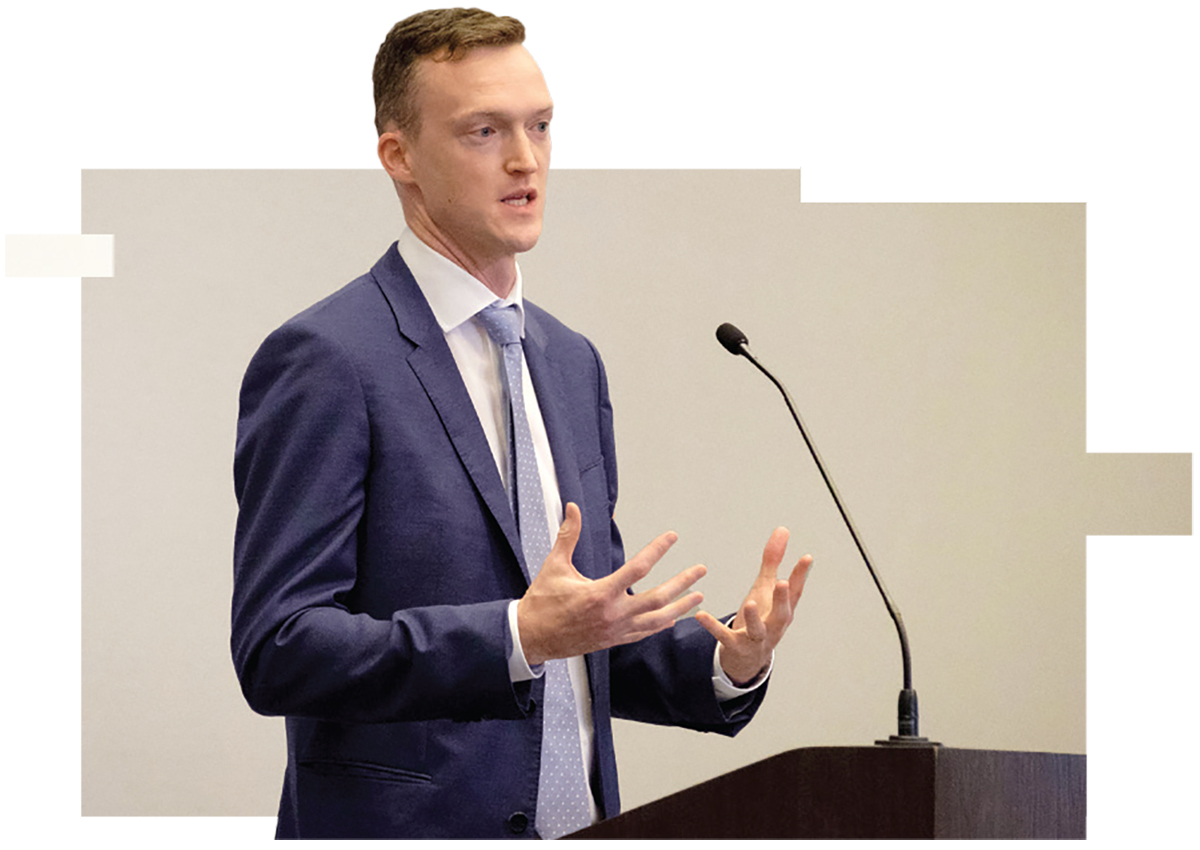PHILIP POTTER: The H4D program is a new class in which student teams work with sponsors from the De- partment of Defense to solve real national se- curity problems. The goals of the program are to expose students to the real-life complexities involved in national security and to teach them the analytical and professional skills that will give them an advantage in their careers.
Batten Professor Philip B. K. Potter, director of the National Security Policy Center, answers questions about the center’s two new programs: Hacking for Defense and Intelligence Analysis.

POTTER: The program, which exists at only a handful of universities around the country, emerged from the Department of Defense’s desire to bring in fresh thinking and innovation, while also fostering the next generation of national security professionals. The National Security Policy Center (NSPC) has a standing relationship with the Department of Defense, which makes it an ideal partner.
POTTER: I’ve been really impressed by the appetite within the defense community for engagement with UVA undergrads. They are taking our students very seriously and pushing them to contribute real solutions—and the students are stepping up to the challenge with top-shelf work. Much of the credit for this success should go to Pro- fessor Brad Carson, who is leading the course. Before joining Batten, he was acting under secretary of defense for personnel & readiness at the Department of Defense, under secretary for the Army and general counsel of the Army. His years of experience in both national securi- ty and academia make him the perfect person to bridge the gap between our students and the Pentagon. He’s uniquely positioned to guide the class in a way that teaches transferrable analyt- ical skills while keeping the students focused on the national security mission of their clients.
POTTER: The NSPC has pioneered new methods to bring academic expertise to government and, in turn, government questions to academics. One of the main ways that we do this is by bringing scholars to UVA to work with intelligence analysts and graduate students on issues that the Intelligence Community has identified as pressing short-term needs.
For each workshop we assign participants several pre-readings from the invited scholars and then ask these scholars to lead an exploration of key concepts, indicators, hypotheses and mechanisms using a meth- odology jointly developed by NSPC faculty and intelligence community leadership. This has proven to be an effective way to bridge the usual divides between academics and policy. The scholars benefit from questions that push their work in directions they are unaccustomed to, as well as from new con- tacts in the intelligence community. Intelligence analysts benefit from curated access to cutting edge academic work. Students benefit from insight into the analysis process as well as opportunities for professional advancement.
POTTER: We run approximately three panels (two hours, one expert) and one workshop (five hours, two experts) per semester. The idea behind the work- shop is to give intelligence analysts access to the best academic research and students a concrete idea of the rigorous assessment that is involved in becoming and being an intelligence analyst. Many of our students are considering whether this is ultimately the right career path for them.
The questions we tackle are wide ranging, covering things like “What are the alliance structures among Yemeni tribes and militant actors?”, “What should we expect from the Kurdish referendum?” or “What do autono- mous systems mean for the future or war?”
POTTER: There’s always more to do. We’ll be taking the H4D students to the Pentagon at the end of the semester, which should be an exciting way to cap things off. We plan to continue the program next year with an expanded set of problem sponsors and more students—there is a lot of demand among the undergraduates. With regard to the intelligence analysis series, we’re extending that program to new intelligence community part- ners this year and hope to make a bigger contribution by reaching more people with more information on pressing issues.